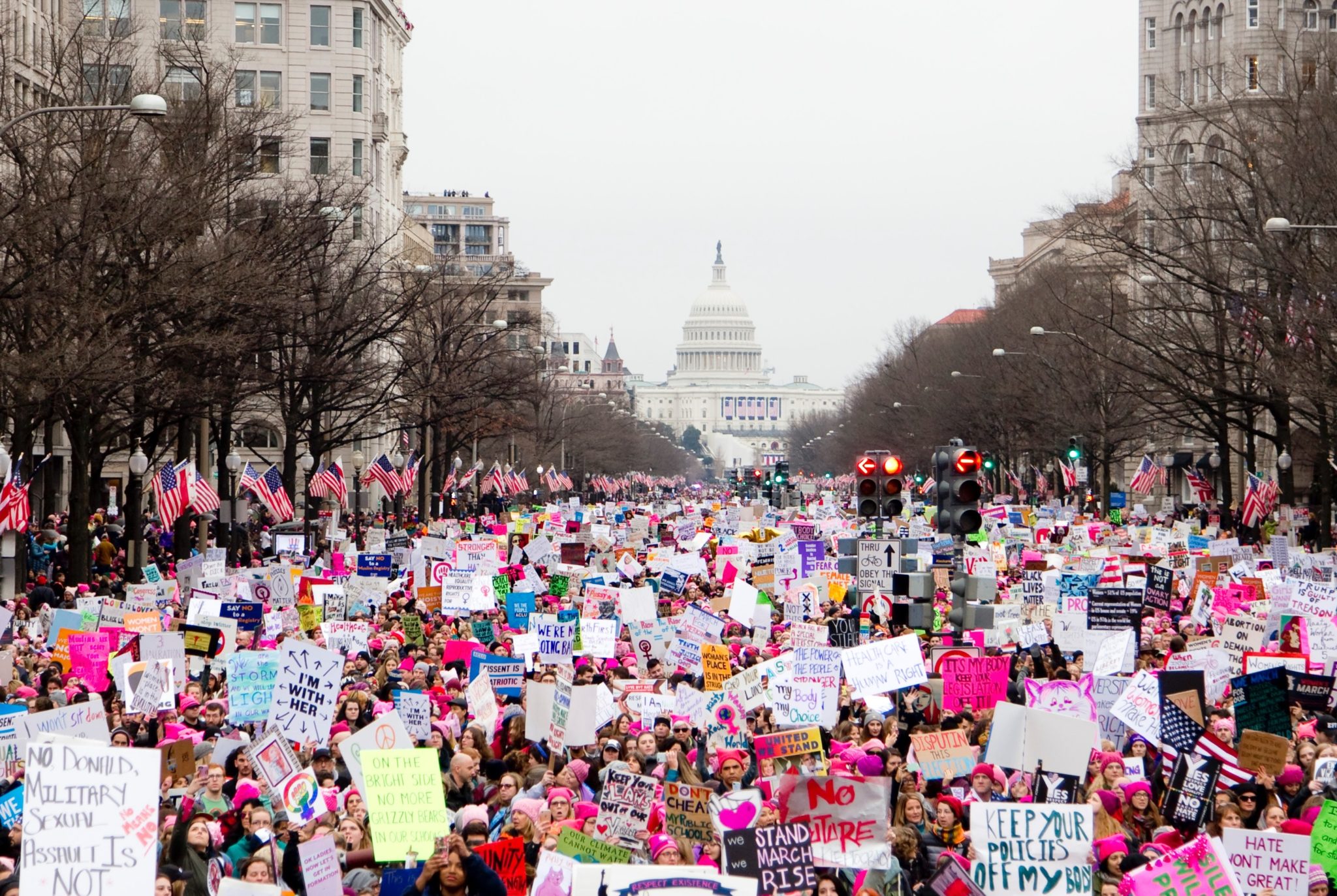Join us on January 22, 2019 at 5pm ET at American University for a panel discussion on…
5 Insights to Politically Active Women in 2020

Women’s political participation has surged since 2016. From taking to the streets January 2017 for the historic first Women’s March, to participating in social activism, to running for office, women are taking it upon themselves to step into the political arena. This year, 2020, could arguably be the most important election in our nation’s history, and women will be the powerful force behind it. Women’s overall civic and political engagement has increased since 2016, surpassing that of men, and making them a crucial group to mobilize when it comes to issues and elections.
For my Master’s Capstone in AU’s School of Public Affairs, I set out to uncover the attitudes and motivations of politically active women to not only gain a greater understanding of why they’re involved in politics, but also what messages motivate them to get involved. With the help of the Virginia League of Women Voters, American University’s Women & Politics Institute, professors, and friends, I conducted a survey of over 600 self-identified politically active women, in November 2019, uncovering very interesting responses. (Please see end note on survey methodology)
- Reproductive rights, health, and justice is the number one motivator: With the Administration’s recent stances on Title X, abortion bans, and lack of access to affordable birth control, many women reported this issue as the motivating factor to get politically involved.
- Women want more tangible tasks, events, and groups to attend: Women reported time and family responsibilities as the biggest barriers when it comes to increasing their political activity. Many reported they are more interested and able to get involved at the local level. Creating actionable, tangible steps that they can do from their phone or at their local town hall, as well as a community to be involved in, would increase political participation.
- Women are not a monolithic group: Women reported getting more involved in politics when a candidate or organization focuses on issues that affected them personally. Women’s participation and attitudes towards politics are different due to the socioeconomic factors that affect all women differently. Talking about issues with an intersectional lens is essential to celebrate and center marginalized voices.
- Show the proof: While storytelling is an effective communication tool many use to message to women, the majority of women reported that they are motivated the most by statistics, facts, and figures. Women reported a higher confidence when they are equipped with facts and statistics they can then share with family and friends.
- Inspire more women to get involved by showing that they can make a difference: Messages that focus on what will happen without women’s representation inspire them to become more politically active. Paired with organizational support, such as training, money, and support groups, women are more likely to succeed and increase their confidence in political participation.
These results are further supported and confirmed by recent research conducted by Gender on the Ballot, which also looked into attitudes and motivations of political participation in women. It is crucial that we understand politically active women in order to keep them engaged. By understanding why and how women become politically active in the first place, we can help organizations, universities, and campaigns effectively message and attract more women to politics in 2020 and beyond.
Note: Due to the distribution of the survey, the majority of results reflect mostly white, Democratic women and do not have enough data from other groups of women to make statistically significant conclusions. It is important to have research including all women, unfortunately this survey is not equally representative, but I put forward these recommendations with hope of further research on politically active women accounting for all races, ethnicities, geographic location, incomes, etc.







